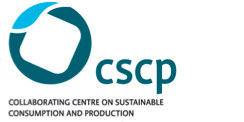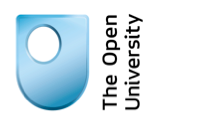The CATALYST partnership is a unique combination composed of 8 experienced organisations offering complementary skills and a longstanding experience in activities similar to the ones to be developed under the project.
The Coordinator
Since its creation in 1984, Sigma Orionis has strived to make an effective contribution to a stronger ‘research – innovation – market’ process through its studies and research activities. Based in Sophia Antipolis, France, Sigma Orionis operates at the European and global levels. The company is heavily involved in research and innovation programmes supported by the European Commission in the ICT domain, as well as in projects aimed at strengthening scientific and technological cooperation between Europe and other regions of the world, especially Africa and Asia.
Communities
The Consortium includes five community partners engaged daily in curating very large online communities on social innovation and citizen engagement platforms, concerned with social and environmental practices (Imagination for People, Wikitalia), sustainable lifestyle (CSCP) and more participatory democratic processes (Purpose, Euclid Network).
 A a running platform devoted to Social Innovation and civic imagination. It is one of the very few international and multilingual platforms dedicated to social and environmental projects. 1000 social innovation projects from 45 countries are already registered on I4P and its community is expanding on a daily basis, both organically and through strategic partnerships with global networks of social innovators and established institutions.
A a running platform devoted to Social Innovation and civic imagination. It is one of the very few international and multilingual platforms dedicated to social and environmental projects. 1000 social innovation projects from 45 countries are already registered on I4P and its community is expanding on a daily basis, both organically and through strategic partnerships with global networks of social innovators and established institutions.
 Purpose creates global movements by harnessing the collective power of citizens to tackle social and political problems. Some of the most well known movements we have launched include Avaaz, which operates in 15 languages and has more than 17m members; All Out, campaigning for LGBT equality across the globe; Get Up, based in Australia, has more members that the country’s political parties put together.
Purpose creates global movements by harnessing the collective power of citizens to tackle social and political problems. Some of the most well known movements we have launched include Avaaz, which operates in 15 languages and has more than 17m members; All Out, campaigning for LGBT equality across the globe; Get Up, based in Australia, has more members that the country’s political parties put together.
 Euclid Network has been part of CATALYST consortium until October 2014 and is the community of civil society leaders and social entrepreneurs which connects, facilitates knowledge sharing, fosters cross boundary partnership, runs pilots and influences policy for a more effective and innovative civil society in Europe and beyond. Established in 2007, it connects over 5000 professionals from more than 30 countries. Its areas of expertise are leadership, innovation, funding and participatory governance.
Euclid Network has been part of CATALYST consortium until October 2014 and is the community of civil society leaders and social entrepreneurs which connects, facilitates knowledge sharing, fosters cross boundary partnership, runs pilots and influences policy for a more effective and innovative civil society in Europe and beyond. Established in 2007, it connects over 5000 professionals from more than 30 countries. Its areas of expertise are leadership, innovation, funding and participatory governance.
 The Collaborating Centre on Sustainable Consumption and Production (CSCP) was jointly founded by the Wuppertal Institute and the United Nations Environment Programme (UNEP) in 2005 to establish an internationally visible institution for scientific research, outreach and transfer activities on sustainable consumption and production (SCP).
The Collaborating Centre on Sustainable Consumption and Production (CSCP) was jointly founded by the Wuppertal Institute and the United Nations Environment Programme (UNEP) in 2005 to establish an internationally visible institution for scientific research, outreach and transfer activities on sustainable consumption and production (SCP).
 Wikitalia is an NGO with the mission of furthering the culture of open government and a geographical focus on Italy. It propitiates constructive collaboration between civic hackers from the civil society and government officials, where the former assist the latter in rolling out projects enhancing the transparency, the accountability, the openness to citizen participation and collaboration of institutions.
Wikitalia is an NGO with the mission of furthering the culture of open government and a geographical focus on Italy. It propitiates constructive collaboration between civic hackers from the civil society and government officials, where the former assist the latter in rolling out projects enhancing the transparency, the accountability, the openness to citizen participation and collaboration of institutions.
Research
 The Open University is the world leader in distance teaching and the largest university in the UK in terms of student numbers. The Knowledge Media Institute (KMi) was set up in 1995, and is widely regarded as an exemplar lab, placing the Open University at the forefront of research and development in a convergence of the internet, multimedia and learning.
The Open University is the world leader in distance teaching and the largest university in the UK in terms of student numbers. The Knowledge Media Institute (KMi) was set up in 1995, and is widely regarded as an exemplar lab, placing the Open University at the forefront of research and development in a convergence of the internet, multimedia and learning.
The Dynamic and Distributed Information Systems Group at the University of Zurich investigates the foundations and technical means for building systems that dynamically adapt to changes in the environment or in their structure. Dr. Mark Klein is a Principal Research Scientist at the MIT Center for Collective Intelligence, as well as an Affiliate at the MIT Computer Science and AI Lab (CSAIL) and the New England Complex Systems Institute (NECSI). He will be part of the UZH team involved in the project.


